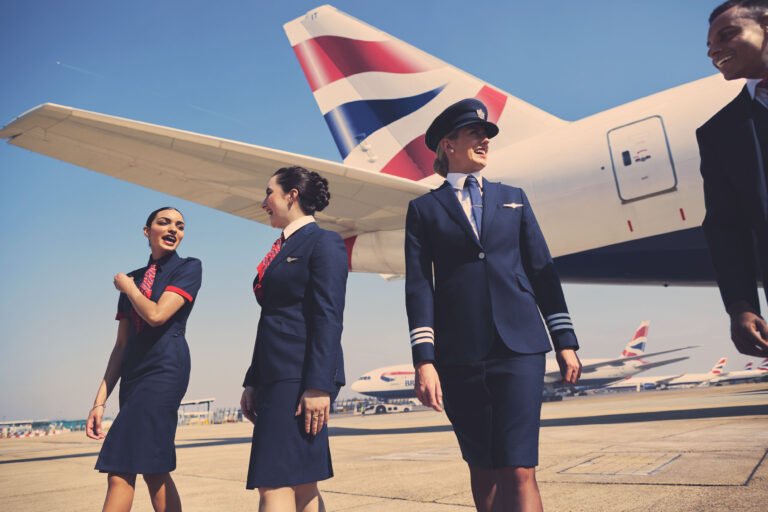British Airways Reverses Uniform Policies
British Airways (BA) has recently retracted controversial guidelines regarding uniform and conduct after facing strong opposition from unions representing its pilots and cabin crew. Based near London Heathrow Airport (LHR), the airline originally intended to prohibit public coffee consumption and limit uniform usage, prompting significant criticism.
Initial Guidelines and Reaction
The initial guidelines instructed crew members to consume food or drinks, other than water, solely within staff-only restrooms or cafeterias, away from public view. The policy permitted water consumption only if done “discreetly,” effectively banning crew from eating or drinking in public airport spaces—a restriction that unions swiftly denounced.
Pilots and flight attendants argued that access to designated break rooms is limited once check-in is complete. Given the long hours they work, often exceeding 12 hours, and few opportunities for rest, these rules were viewed as unrealistic and unnecessarily stringent.
British Airways later clarified in an internal memo that it did not ban eating and drinking outright. Nonetheless, the wording created confusion, implying a stricter prohibition. The airline confirmed that crew may take breaks in cafes or gate areas, though eating or drinking while walking through terminals remains discouraged.
Uniform Use and Deadheading Policies
The airline also sought to change uniform policies for commuting and deadheading crew. Initially, staff were to be barred from wearing uniforms unless actively working on a flight.
| Term | Definition |
|---|---|
| Commuting | When crew travel to their base city, often using discounted or reciprocal tickets. |
| Deadheading | When crew travel as passengers to another destination as part of an assigned duty schedule. |
While regulations already require crew to remove identifiable uniform items when off duty, British Airways claimed this conflicted with its branding standards. As a solution, the airline banned commuting and deadheading staff from wearing uniforms altogether.
The unions criticized this as impractical, noting that crew frequently have to move between flights quickly and may not have convenient access to changing facilities. The airline responded to this pressure by temporarily lifting the ban, while searching for a compromise.
The Importance of Standards
The rationale for these changes was to reinforce appearance standards, which BA’s management argued had diminished since the COVID-19 pandemic. The airline is not alone; competitors such as Emirates have faced similar criticisms about service quality, and Virgin Atlantic has relaxed its rules around visible tattoos.
Maintaining a professional standard is crucial for brand image, yet industry experts highlight the necessity for rules to adapt to contemporary working conditions. Overly restrictive policies run the risk of alienating staff and generating more negative publicity.
Achieving Balance
BA’s retraction of the coffee ban and reevaluation of uniform restrictions illustrate the challenges airlines face in balancing tradition with evolving workforce realities. The airline ultimately recognized the need for practical and respectful policies, reflecting the day-to-day challenges its employees face. This incident underscores the importance of collaborating with unions prior to enacting significant workplace changes.
Stay informed by following us on social media for the latest updates.

